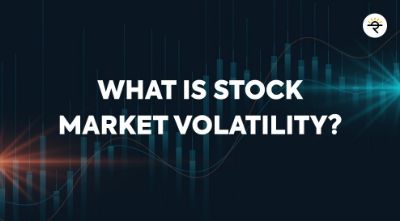We all have witnessed what happened in the past few days in the market. Hindenburg Research LLC an investment research firm with a focus on activist short-selling published a report on Adani Group stocks on 24th January 2023 accusing the group of various allegations. This caused the Adani group stocks to jump down the aircraft without parachutes. This is not the first time someone is making allegations about the Adani group, so there was a minimal impact on the market. The report slowly spread like wildfire and it was reflected in the stock prices on 27th January when almost all the group stocks declined by 15%-20%. This increased the overall volatility of the market.

What is Stock Market Volatility?
Stock market volatility refers to the fluctuation of stock prices in a short period of time. This can be caused by a variety of factors, including economic news, geopolitical events, changes in interest rates, market sentiment, etc. Volatility can have a significant impact on investors, as it can lead to both large gains and losses in a short period of time. This volatility is measured by Volatility Index also called India VIX. Let us see what the VIX looked like on 27th January.

The VIX spiked by 18.18% on 27th January. This volatility can be seen as both a positive and negative aspect of the stock market. On one hand, high volatility can lead to large gains for investors who are able to correctly anticipate market movements. On the other hand, it can also lead to significant losses for those who are caught off guard by sudden market changes.
Another factor that can contribute to stock market volatility is the actions of market participants, such as institutional investors and hedge funds. These large players have the ability to move the market with their buying and selling decisions, which can lead to rapid price changes. They usually buy or sell stocks in bulk. The problem here is not all bulk deals are known beforehand. You can see these bulk deals on the website of the Stock Exchange a day after these deals take place.

How to protect your investments from volatility?
One way to mitigate the negative effects of volatility is to adopt a long-term investment strategy. This means avoiding making knee-jerk reactions to short-term market movements and instead focusing on building a diversified portfolio that is well-suited to your risk tolerance and investment goals. Additionally, investors can also consider using tools such as stop-loss orders, which automatically sell a stock if it falls below a certain price, in order to limit potential losses.
Can we avoid volatility?
It is also important to keep in mind that stock market volatility is a natural part of the market cycle. In general, the stock market tends to be more volatile during times of economic uncertainty, such as recessions or economic downturns. However, over the long term, the stock market has historically produced positive returns, making it an attractive investment option for those who are willing to tolerate short-term volatility.

In conclusion, stock market volatility is a part of investing, and understanding its causes and effects is essential for making informed investment decisions. By adopting a long-term investment strategy, using tools to limit potential losses, and staying informed about market movements, investors can minimize the negative impact of volatility and maximize their chances of success in the stock market. How to learn and use those tools is a topic for another discussion, until then…



